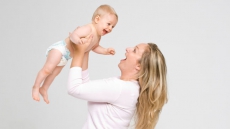Researchers, using mathematical models, have defined for the first time how powerfully immune cells respond to infection and disease.
The findings could enhance efforts to predict a person's risk of autoimmune diseases and improve treatment for these conditions.
The researchers used mathematics and computer modelling to understand how complex signalling impacts the size of the response by key infection-fighting immune cells called T cells.
"The outcome of our research is that, for the first time, we are able to predict the size of an immune response, such as the response to flu virus, based on the sum of the signals received by the flu-responsive T cells," said Julia Marchingo from Walter and Eliza Hall Institute of Medical Research in Australia.
T cells are important for launching specific immune responses against invading microbes, as well as eliminating some cancer cells.
Errors in the control of T cells can lead to harmful "autoimmune" responses that attack the body's own tissues, the underlying cause of diseases including type-1 diabetes and rheumatoid arthritis.
"The team combined laboratory data with mathematical models to clarify how different external signals impact on T cell proliferation," Marchingo added.
"Therapies that harness the immune system to attack cancerous cells have begun to show great promise for treating cancer," said co-lead researcher Susanne Heinzel from Walter and Eliza Hall Institute of Medical Research.
"Our research provides clarity about how these anti-cancer immune responses could be enhanced to develop new, and improve existing, cancer treatments," Heinzel explained.
The study appeared in the journal Science.





